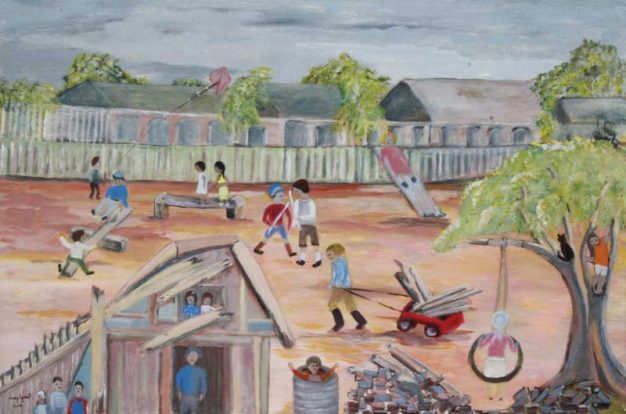
Save the date – June 11 is International Day of Play
The first universally-recognised International Day of Play – taking place on 11 June – will be a celebration of ‘the power of play’ – but also a time for some critical thinking about how the future of play access and provision.
Right to Play is a global movement at the forefront of this new initiative, which it is hoped will bring together millions of children, parents, teachers and, crucially, decision-makers across the world, to harness play in a way it can influence future policies.
Susan McIsaac, President & CEO of Right To Play International, said: “Play is powerful. Through play, children explore and understand the world, learn how to collaborate and empathise with others, build the confidence to claim their rights, and develop a lifelong love of learning.
“For close to 25 years, Right To Play has harnessed the power of play to protect, educate, and empower millions of children each year to rise above adversity. We are proud to be one of the founding members of the International Day of Play, working with partners to give global legitimacy to what children have always known: that play is a transformative force in their lives, and that every child should have the right to play.
(Image below courtesy of internationaldayofplay.org)

The adoption of a U.N. resolution for a day centred around play, says the organisation, ‘creates a unifying moment at the global, national, and local levels to elevate the importance of play as central to children’s learning and wellbeing – ensuring time to play, space to play and support for quality play is prioritised’.
The resolution itself recognises ‘the role of play in building essential and transferable physical, social, cognitive, communication and emotional life skills at all ages, and its positive impact on promoting tolerance and resilience and facilitating social inclusion, conflict prevention and peacebuilding’.
International Day of Play also presents an opportunity for national associations to take stock of the current situation regarding play in their country, and many are running campaigns to get some insights. In Northern Ireland for example, PlayBoard NI is dedicated to the development and promotion of children and young people’s play.
As well as sharing various ideas through its Summer of Play Challenge, it has also been running a children & young people survey, giving youngsters a chance to have their say on how important play is to them, what they like to do and what, crucially, are the barriers which stop them doing what they want to do. The survey is almost finished but contributions are still possible until 3 June – click here for more information.
‘Strengthens families and helps children develop essential skills’
Another of the campaign’s lead organisers is the LEGO Group and Lego Foundation, and its CEO, Niels B. Christiansen, added: “We believe that all children should benefit from the power of play. For more than 90 years we have championed children’s right to play, as we know that it can change lives. It strengthens family bonds and helps children develop essential skills and reach their full potential.
“We have hosted our own World Play Day the past two years to celebrate the importance of play. Now, we are excited to turn it into a global movement to engage and impact even more children together with our partners. The adoption of an International Day of Play by the UN is a true testament to the power of play and the need to collectively champion and protect all children’s right to play.”
Click here for the International Day of Play website.
Click here for the full U.N. Resolution.
The campaign for an International Day of Play was initiated by the LEGO Group and the LEGO Foundation in partnership with Right To Play, ADEA, Arup, BRAC, Change X, Concerned for Working Children, Eurochild, Hasbro, INGKA, International Play Association, IRC, KidZania, Mattel, NIKE, inc., PEDAL, Plan International, Save the Children and Sesame Workshop. The campaign was led by a Core Group of U.N. Member States – Vietnam, El Salvador, Bulgaria, Jamaica, Kenya and Luxembourg – that worked to mobilise support for the resolution within their region.




